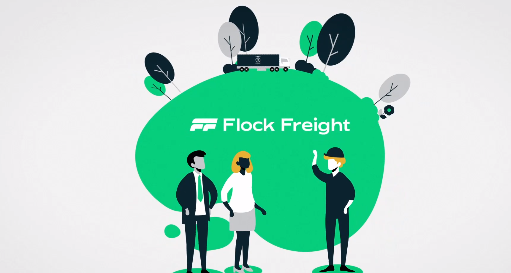Flock Freight Leads Climate Week NYC Panel on How to Decrease Carbon Emissions by Building a Smarter Supply Chain
“Moving America’s Freight Industry Towards Net Zero: How the Transport Industry is Saving the Planet by Pooling More Freight”
Flock Freight hosted a panel at Climate Week NYC called “Moving America’s Freight Industry Towards Net Zero: How the Transport Industry is Saving the Planet by Pooling More Freight” with industry leaders about how the freight industry can reduce carbon emissions by creating a better supply chain.
The panel was moderated by Kristina Wyatt, deputy general counsel and senior vice president of Global Regulatory Climate Disclosure at Persefoni, and featured Oren Zaslansky, founder and CEO of Flock Freight; Allison Cullin, senior vice president at Boundary Stone Partners; David Glick, CTO of Flexe; and Christine Weydig, executive director at the Coalition for Reimagined Mobility.
The panelists highlighted collaborative efforts that will accelerate industry-wide investments to reduce carbon emissions and optimize the supply chain, focusing on freight shipping, which produces more than seven percent of global greenhouse gas (GHG) emissions. They highlighted public and private sector efforts to increase transparency and standardization across the transportation industry to monitor and manage climate-related risks.
“The new move with the SEC to require publicly listed companies to share their carbon emissions is going to be one of those forcing functions,” said Oren Zaslansky, Flock Freight. “From the sustainability perspective, you will burn the same amount of diesel fuel for every mile you run down the road whether that truck is full or half-full. We believe that finding that empty space and filling that empty space is going to create value for all stakeholders.”
“We’re seeing policymakers start to look at operations as the key element in reducing emissions and increasing sustainability in the transportation sector,” said Allison Cullin, Boundary Stone Partners. “Policymakers are beginning to see that there are steps beyond traditional infrastructure and they’re thinking about what that looks like.”
“By adopting digital standards that some of the other sectors of the economy have already benefited from, we can improve on sustainability and resilience of the supply chain to better withstand disruptions,” said Christine Weydig, Coalition for Reimagined Mobility.
“Adoption is much harder than automation because people already have their roadmaps set. Even if you give them a much better product that will make their lives easier, making the transition is often a challenging barrier,” said David Glick, Flexe. “We need to make sure that it’s not just building better products, it’s driving the adoption curve, which can be helped by the President signing executive orders and the SEC rating rules.”
Category: Connected Fleet News, Driver Stuff, Equipment, Featured, Fleet Tracking, Fuel & Oil, General Update, Green, News, Products, Tech Talk, Transit News, Vehicles











